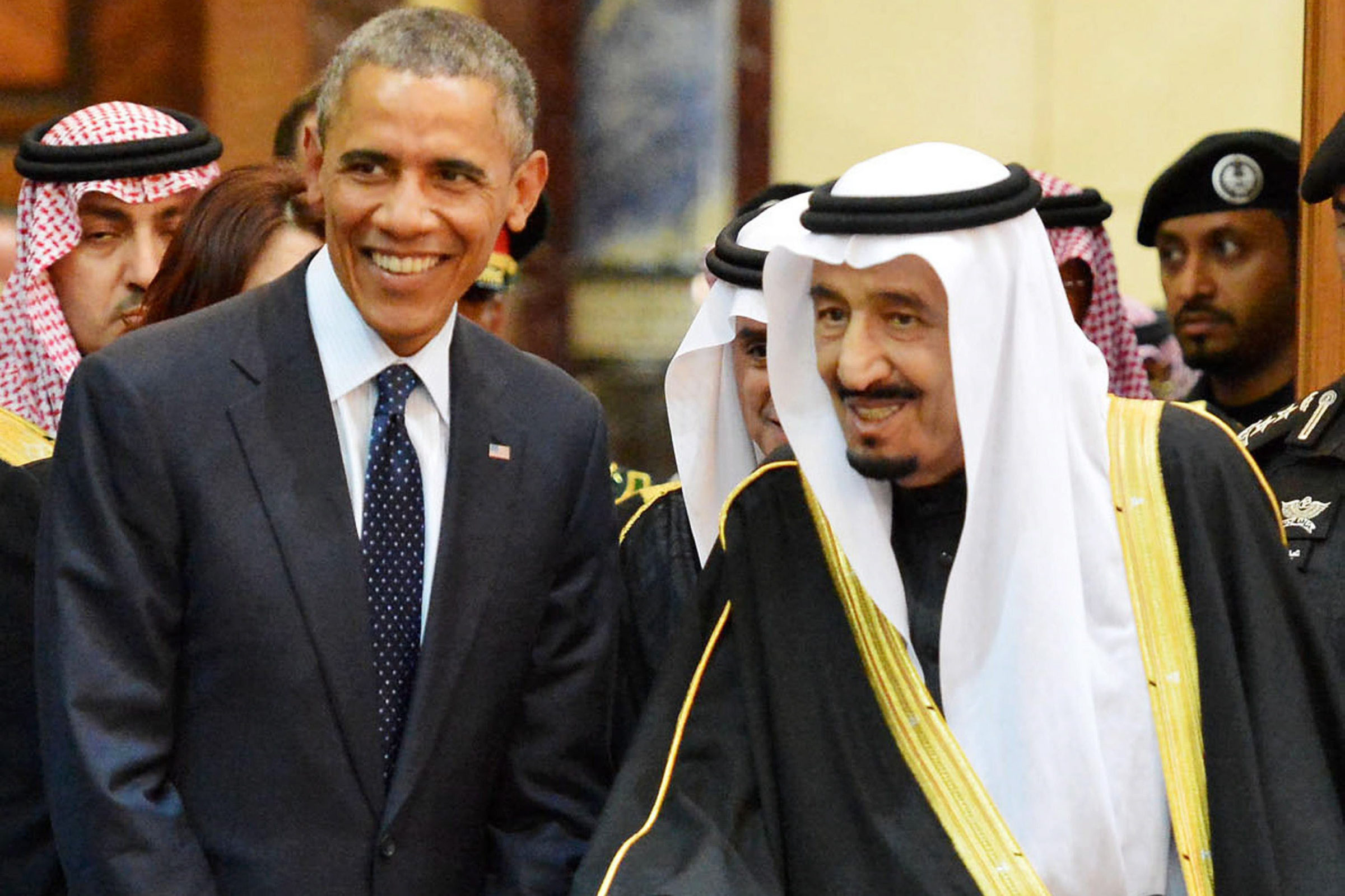“It’s complicated” responded President Obama after being pressed about the status of his friendship with Saudi Arabia, the repressive monarchy doing more harm than good in the Middle East. Today, Obama is set to meet with his counterpart in this complicated relationship at the GCC summit where Saudi leaders and other GCC heads of state will come together to discuss issues concerning regional security.
However, is the US-Saudi relationship really as complicated as all this passive aggression lets on? Underneath this temporary rift, the long-standing oil-for-security alliance between the two governments remains in place.
Business is booming for US arms manufacturers as the Obama administration continues to pump weapons into the hands of the repressive monarchy. The kingdom is the largest customer of US foreign military sales (FMS), with nearly $100 billion in active FMS. The Obama administration has approved over $195 billion in total arms sales, more than any other administration since WWII. In December of 2011, the US finalized its largest international defense sale in history – approximately $29.4 billion – to none other than its ‘complicated’ partner: Saudi Arabia.
So if the Saudis are “free-riders,” as Obama told the Atlantic, it’s partially because America’s gluttonous military-industrial complex has allowed them to be. Weapons manufacturers profiting off war set the agenda for American foreign policy – with predictable results. The promotion of U.S. arms sales is an issue at the attention of “every top-level official who’s working on foreign policy throughout the government,” according to the State Department’s Tom Kelly. It is a shared concern because, simply put, it is the most cost-effective way to influence foreign policy in favor of American interest.
Yemen best exemplifies the ramifications of this complicated relationship. The poorest country in the Middle East has already experienced years of U.S. drone strikes, which have targeted wedding parties and killed hundreds of civilians. In March 2015, Saudi Arabia embarked on what was predicted to be a quick military campaign against the allegedly Iran-backed Houthi militias who over took Yemen’s capital.
Fast-forward a year, and 82% of the country’s population is need of urgent humanitarian assistance. Indiscriminate air strikes launched by the Saudi-led coalition have hit hospitals, schools, a refugee camp and neighborhoods. A March 2016 strike using US-made bombs killed at least 97 civilians, including 25 children at a market. The war has resulted in the death of over 3,000 civilians, with children comprising over 900 of those killed. Malnourishment for children under the age of five increased by 52 percent since the start of the war. In a representative example of how dire the situation has become, a five-month old Udai Faisal recently died of severe malnutrition, weighing just a little over five pounds at the time of his death.
In November 2015, the US approved an FMS sale of $1.29 billion to Saudi Arabia to replenish the Kingdom’s weapons supplies that had become “depleted.” As the CEO of Lockheed Martin stated, the “volatility” in the Middle East make it a “growth area.” Clearly, US weapons companies are thriving from this violence.
Recently, parties to the Yemen conflict agreed to a ceasefire beginning April 11, and signed a UN Security Council resolution. Still, in addition to these positive developments, independent, international investigations are needed into the conduct of all parties. It is vital that international bodies, especially the UN Security Council, hold all those accountable for possible war crimes in the Yemen crisis. What is needed most of all is for the US to implement an arms embargo, much like the recent resolution passed by the EU calling for an arms embargo, which is an effective response to the Saudi government’s conduct in the war.
President Obama believes he has broken the ‘Washington playbook’ by not responding to security threats with direct military intervention. But while there are no physical boots on the ground in Yemen, the Obama administration’s record-setting weapons sales to authoritarian governments are certainly consistent with America’s foreign policy establishment.
As the American government touts democratic ideals and the importance of human rights, it lays in bed with some of the world’s most repressive regimes in the name of “security.” Human rights are not a strict prerequisite on America’s list of what it seeks in a partner.
Unsurprisingly, Obama’s upcoming visit to the GCC will focus on the strategic partnership and “defense and security cooperation.” Ultimately, the rift in this ‘complicated’ relationship caused by Goldberg’s report has a predictably simple solution: more arms sales. In the end, it will be a ‘happily-ever-after’ for everyone involved, including the United States and its allies in the Gulf.
Everyone except, of course, Yemen.
Mobashra Tazamal is an advocacy fellow at ADHRB.





